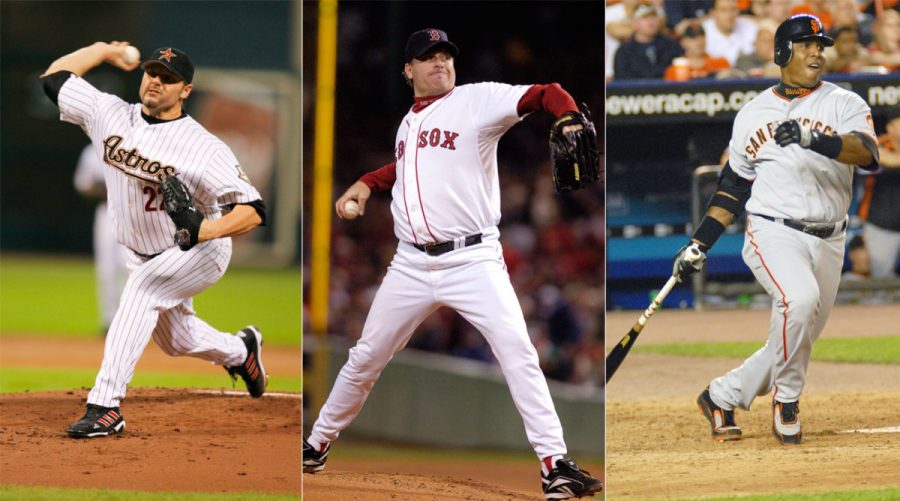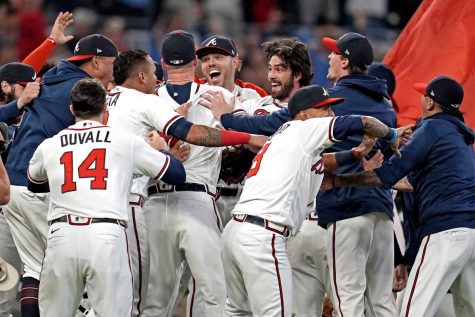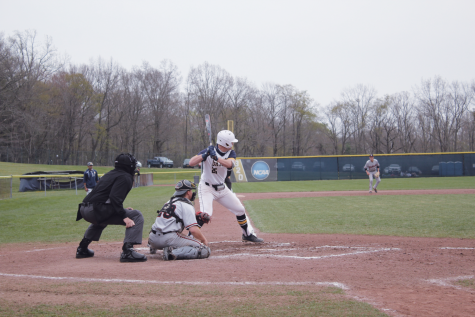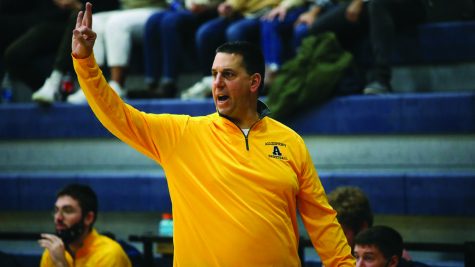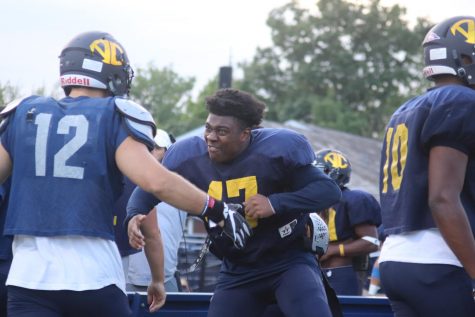Nobody will be inducted into the Baseball Hall of Fame this year
Photo contributed by https://www.si.com
Roger Clemens (left), Curt Schilling (middle), and Barry Bonds (right) garnered the three highest voting percentages on the 2021 ballot, yet a slew of controversies have kept them out of the Hall for another year.
Controversy, borderline Hall of Fame players and the pandemic left an empty Baseball Hall of Fame ballot for the first time since 1960. Usually, other Hall of Fame committees besides the Baseball Writers’ Association of America will induct Hall of Famers, but because of the pandemic the Early Games Committee and the Golden Era Committee will wait until 2022 to cast their vote.
In order to be a Hall of Famer, a candidate has to receive 75% of the vote. Curt Schilling was the closest player to the threshold and received 71.1% of the vote. Besides Schilling, only Barry Bonds (61.8%), Roger Clemens (61.6%) and Scott Rolen (52.9%) received over 50%. Schilling, Bonds and Clemens only have one year left on the BBWAA ballot before another group of Hall of Fame representatives, the Veterans Committee, will decide their fate.
Many baseball fans evaluating Bonds and Clemens by talent alone agree they should be in the Hall of Fame. Bonds’ 762 home runs are the most of all-time, whereas Clemens’ 4672 strikeouts rank third of all-time. However, Bonds and Clemens are highly suspected of taking performance-enhancing drugs throughout their career. This is because these two greats were mentioned in the infamous 2003 “Mitchell Report”, which contained a long list of players that were suspected of taking PEDs.
Given the controversy of various players on the ballot, Senna Perelman, ’23, was not surprised by the BBWAA’s verdict.
“If you are going to hold yourself to a standard of being in the Hall of Fame, then you shouldn’t feel the need of taking performance-enhancing drugs in the first place,” Perelman said.
Even though Bonds and Clemens are presumed guilty of taking PEDs, they never failed drug tests given by Major League Baseball. MLB began to hand out suspensions in the beginning of the 2004 season, which was after players in the Mitchell Report took PEDs. However, many players since 2004 have been suspended for taking PEDs.
Sylvan Free, ’22, has more compassion for players who took PEDs before 2004, but does not want any of these types of players to be immortalized in Cooperstown.
“It’s cheating,” Free said. “The sport is something that is not based on who’s the strongest or the fastest. It’s about strategy, skill, and teamwork. Using PEDs puts all of that aside, and puts the stats at a different level.”
Schilling, on the other hand, has never been found guilty of taking PEDs. His 79.5 bWAR (Baseball Reference Wins Above Replacement) is the second most out of all pitchers who have not made the Hall. Unfortunately, Schilling has made insensitive comments on Twitter that have been considered islamaphobic and transphobic, which has denied his path to Cooperstown. Perelman argues that unlike the players that took PEDs, those who have made distasteful comments should never be allowed in the Hall of Fame.
“Nowadays people need to be held accountable for what they say and their actions,” Perelman said. “Many people argue that (baseball) is just a game, and we should let the stats speak for themselves. Yet, we shouldn’t be honoring people, in this case, who spew hateful messages, despite the stats they put up.”
Almost immediately after the results of the 2021 ballot, Schilling commented on Facebook that he is asking the Hall of Fame to take his name off the BBWAA’s ballot in 2022. Additionally, Schilling criticized the writers for hurting his reputation and stated that if the Veterans Committee, filled with former MLB players, voted him in then he would be satisfied with the results. Since his statement, the BBWAA has asked the Hall of Fame to deny Schilling his request on the grounds that it would be a violation of the rules set forth by the BBWAA committee. The Hall of Fame has yet to make a verdict on his case.
Free acknowledges that Schilling’s statement ruins his chances of being elected in 2022 by the BBWAA, which could make him the second player who’s failed to make the Hall of Fame after accumulating 50% or more on the BBWAA’s ballot.
“It was a slap in the face to the baseball Hall of Fame,” Free said. “His statement is also a slap in the face to all of Schilling’s fans, who are rooting for him to make the Hall of Fame.”
Although Schilling, Bonds, and Clemens were the main players to watch on this year’s ballot, five players gained over 10% of the vote. These players include Scott Rolen, Todd Helton, Billy Wagner, Andruw Jones, and Gary Sheffield. Cameron Karnik, ’22, has faith that a couple of these players will eventually enter the Hall.
“I can see Helton and Wagner making it in for sure,” Karnik said. “Wagner was like Aroldis Chapman, but tiny. Helton was one of the most consistent hitters for the Rockies ever, and played during their golden days.”
Helton and Wagner may not reach the Hall of Fame in 2022 because they would need a seismic jump to meet the 75% threshold. These borderline Hall of Fame candidates may be hurt by the incoming 2022 class, which contain more PED users such as Alex Rodriguez and David Ortiz. Other notables on the 2022 ballot are Mark Teixeira, Jimmy Rollins, Ryan Howard, Tim Lincecum, Jonathan Papelbon and Joe Nathan. Karnik feels confident that the level of talent on the 2022 ballot will not result in another empty ballot.
“Next year, the BBWAA will feel a lot more pressure to elect someone because of the fans and new players on the ballot,” Karnik said. “Especially with David Ortiz on the ballot, he’s a really great off-the-field humanitarian and what he did for Boston. Other than that, I can see Bonds sneaking in on his last year.”
Because of the holdovers on the 2021 ballot, the presence of two additional Hall of Fame committees and the incoming 2022 class, there should not be an empty ballot year.

Adam Cohen is a third-year student from New York City. This is his second year on the Campus staff and he is a Communication major with a double minor...




